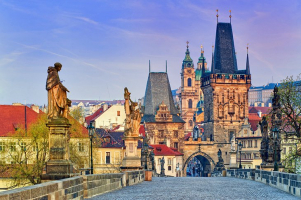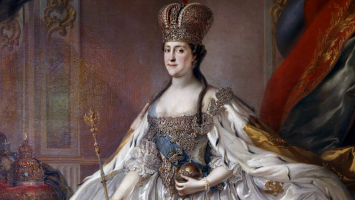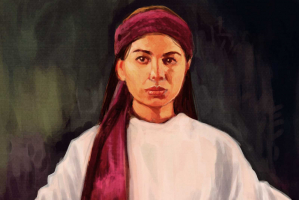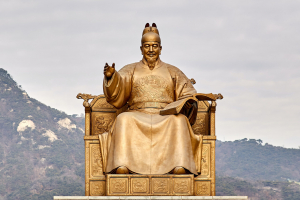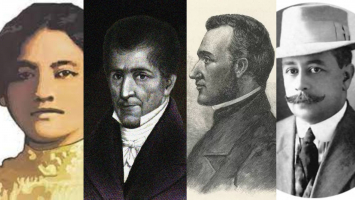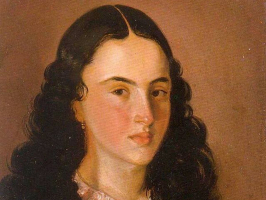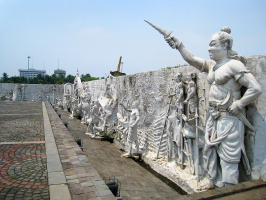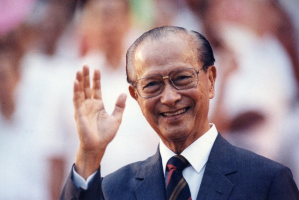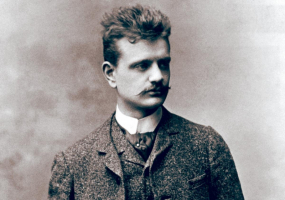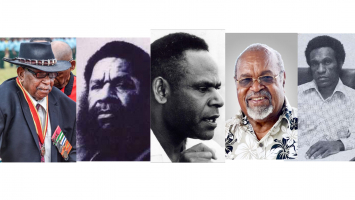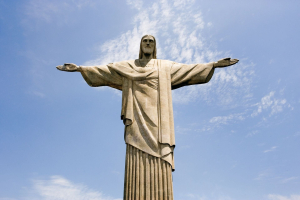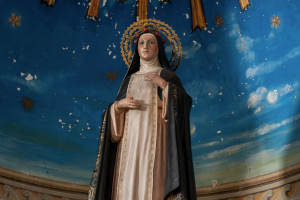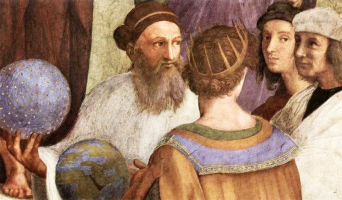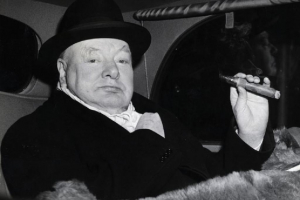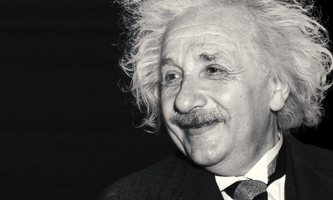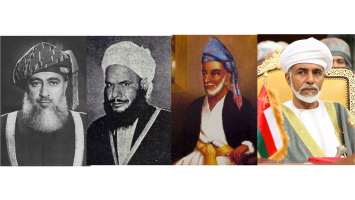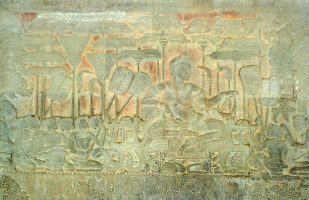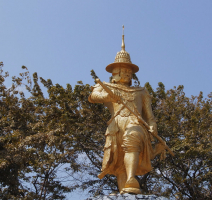Top 11 Most Important Historical Figures In The Czech Republic (Czechia)
Czechia, or the Czech Republic, is a landlocked country in Central Europe. It is bounded to the south by Austria, to the west by Germany, to the northeast by ... read more...Poland, and to the southeast by Slovakia. The Czech Republic has a hilly environment with a largely temperate continental and oceanic climate, covering an area of 78,871 square kilometers (30,452 square miles). Here are the 11 most important historical figures in the Czech Republic (Czechia) who made a number of contributions to their country in the form of advancements in literature, architecture, art, government, philosophy, and so on. Look at the list to discover a little more information about them
-
One of the most important historical figures in the Czech Republic (Czechia) is Charles IV. Charles IV, also known as Charles of Luxembourg and born Wenceslaus (14 May 1316 – 29 November 1378), was the first king of Bohemia to hold the office of the Holy Roman Emperor. He belonged to the House of Luxembourg on his father's side and the Bohemian House of Pemyslid on his mother's side; he placed more emphasis on the latter due to his lifelong affinity for the Bohemian side of his inheritance as well as the fact that two saints were among his direct ancestors in the Pemyslid line.
He was chosen by the prince-electors to succeed Louis IV, Holy Roman Emperor, as King of the Romans (rex Romanorum), on July 11, 1346. Bonn hosted the coronation of Charles on November 26, 1346. He was re-elected in 1349 and given the title of King of the Romans after his rival passed away. He was anointed Holy Roman Emperor and King of Italy in 1355. He assumed personal control over every country in the Holy Roman Empire after being crowned King of Burgundy in 1365.
He continues to be a very well-liked figure in the Czech Republic despite having played a significant role in the political and cultural history of the Kingdom of Bohemia. The Holy Roman Empire's politics underwent a structural transformation after the Golden Bull in 1356. However, there are still some issues around some aspects of his legacy. The image of Charles as a wise, religious, and peace-loving king partially created by Charles himself has proven to be influential even now, as seen by a number of creative or academic endeavors completed either during or after Charles's reign.
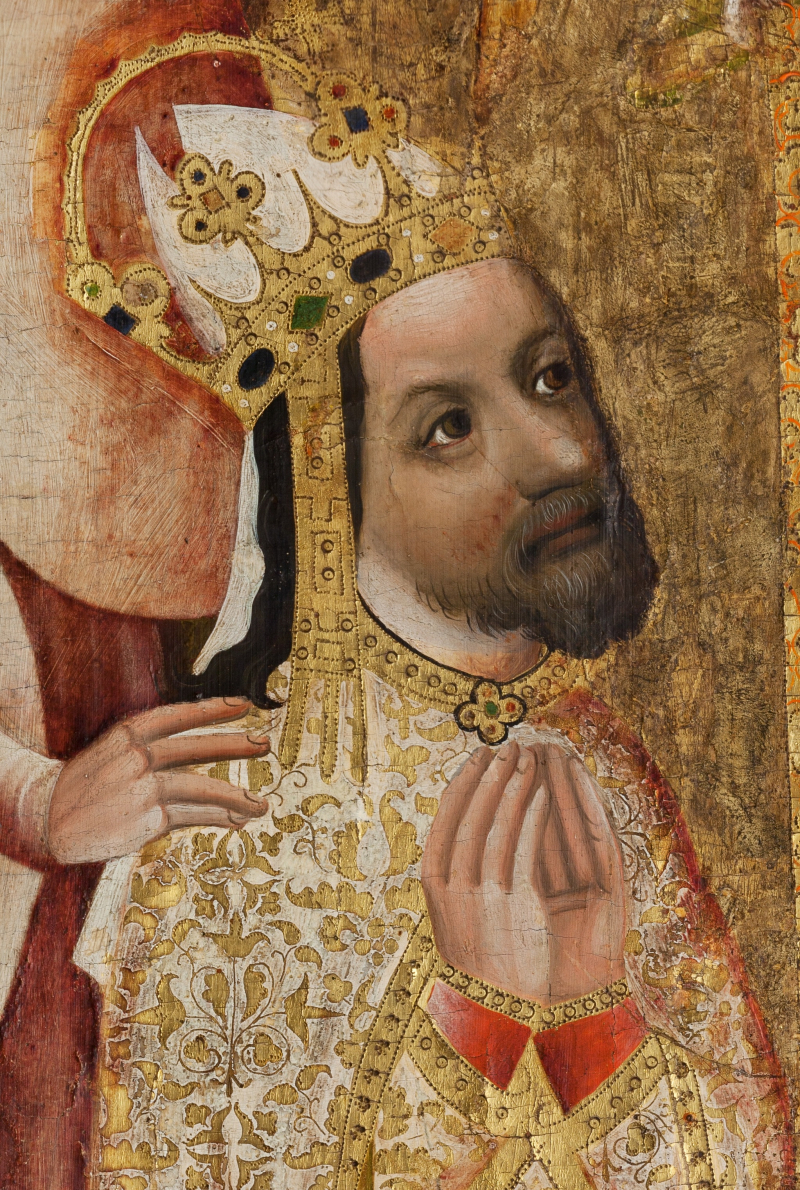
en.wikipedia.org 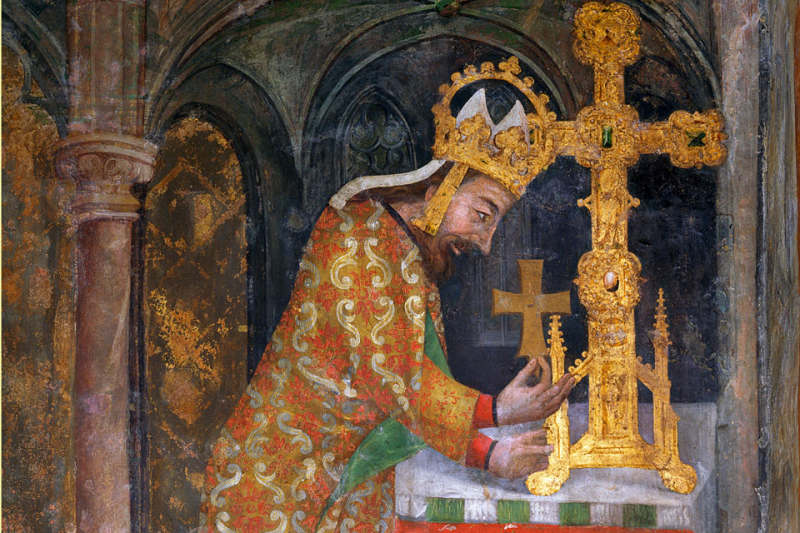
medieval.eu -
Gregor Johann Mendel (20 July 1822 – 6 January 1884) was an Augustinian friar and the abbot of St. Thomas' Abbey in Brünn (Brno), Margraviate of Moravia. Mendel was born in the Silesian section of the Austrian Empire (today's Czech Republic) to a German-speaking family and is widely regarded as the inventor of modern genetics. Though farmers had known for millennia that crossbreeding of animals and plants may favor some desirable qualities, Mendel's pea plant studies between 1856 and 1863 established many of the rules of heredity, now known as Mendelian inheritance laws.
Mendel experimented with seven pea plant characteristics: plant height, pod form and color, seed shape and color, and bloom location and color. Mendel demonstrated that when a true-breeding yellow pea and a true-breeding green pea were cross-bred, the progeny always produced yellow seeds. However, the green peas emerged in the following generation at a 1 green to 3 yellow ratios. Mendel used the terms "recessive" and "dominant" in regard to specific features to explain this phenomenon. In the above example, the green trait is recessive and the yellow trait is dominant, despite the fact that it appears to have vanished in the first filial generation. He presented his findings in 1866, establishing the role of genes in determining an organism's features reliably.
The tremendous significance of Mendel's work was not realized until the turn of the twentieth century (more than three decades later) when his laws were rediscovery. In 1900, several of Mendel's experimental findings were independently corroborated by Erich von Tschermak, Hugo de Vries, and Carl Correns, ushering in the modern era of genetics.
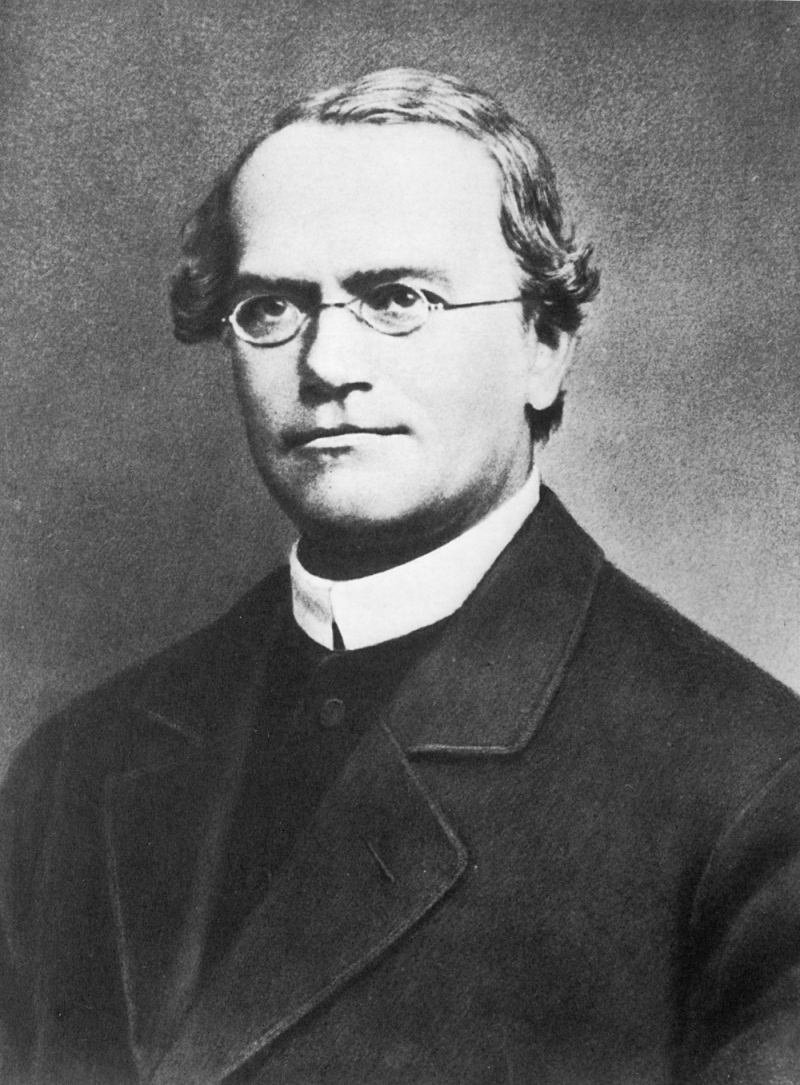
vi.wikipedia.org 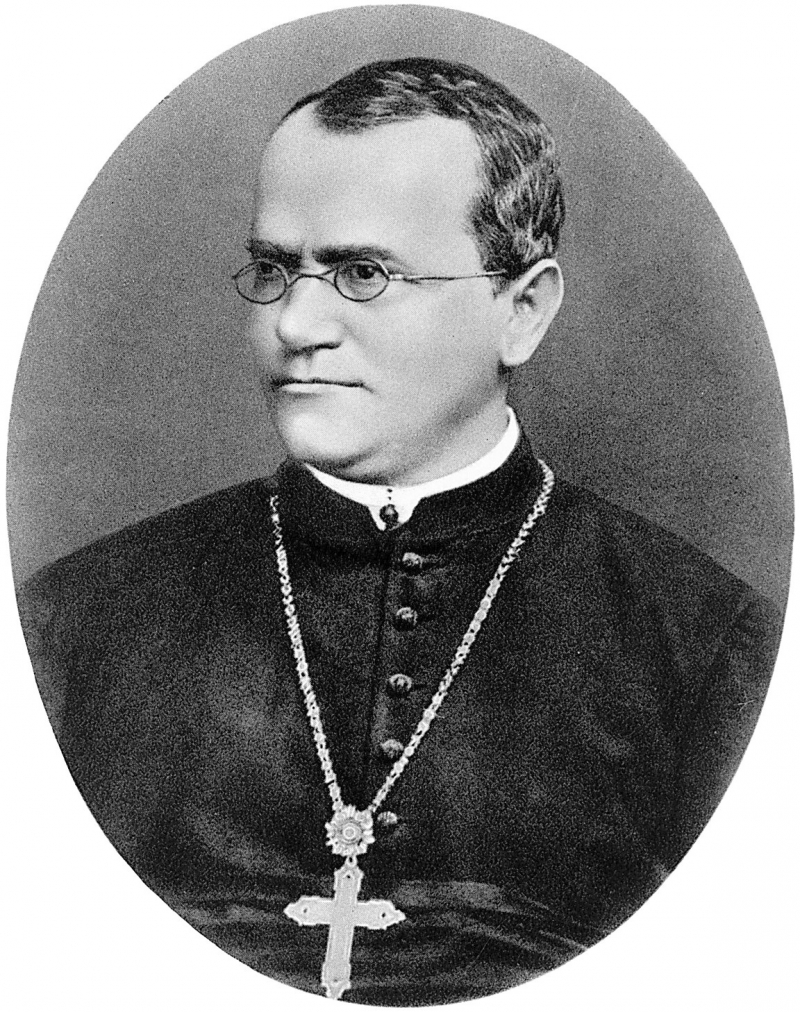
simple.wikipedia.org -
Bedřich Smetana was a Czech composer who pioneered the development of a musical style that became strongly associated with his people's dreams for a cultural and political "revival." In his homeland, he is hailed as the "Father of Czech Music." Internationally, he is most known for his 1866 opera The Bartered Bride and the symphonic cycle Má vlast ("My Fatherland"), which depicts the composer's homeland Bohemia's history, folklore, and geography. It includes the well-known symphonic poem "Vltava," also known as "Die Moldau" in German (in English, "The Moldau").
Smetana was a natural composer who delivered his first public concert at the age of six. After finishing his formal education, he went to Prague to study music with Josef Proksch. His first nationalistic song was composed during the 1848 Prague revolt, in which he took part briefly. After failing to make a name for himself in Prague, he moved to Sweden, where he worked as a teacher and choirmaster in Gothenburg and began to compose large-scale orchestral pieces.
A more open political climate in Bohemia led Smetana to return to Prague permanently in the early 1860s. He immersed himself in the city's musical culture, particularly as a supporter of the emerging Czech opera genre. His first two operas, The Brandenburgers in Bohemia and The Bartered Bride, were presented in Prague's new Provisional Theatre in 1866, with the latter becoming a huge success. Smetana became the theatre's principal conductor the following year, but his tenure was marred by controversy. Some in the city's musical elite saw his affinity for the revolutionary concepts of Franz Liszt and Richard Wagner as detrimental to the development of a distinctively Czech opera style. This hostility hampered his creative output and may have worsened his health decline, which led to his resignation from the theatre in 1874.
Smetana had become entirely deaf by the end of 1874, but now that he was free of his theatre duties and the associated disputes, he entered a phase of sustained composition that lasted virtually the rest of his life. His contributions to Czech music were more recognized and honored, but a mental breakdown early in 1884 resulted in his confinement in a hospital and death. Smetana's position as the founding father of Czech music has lasted in his homeland, where supporters have elevated him above his contemporaries and successors. However, few of Smetana's compositions are in the international repertory, and most foreign reviewers consider Antonn Dvoák to be a more significant Czech composer.
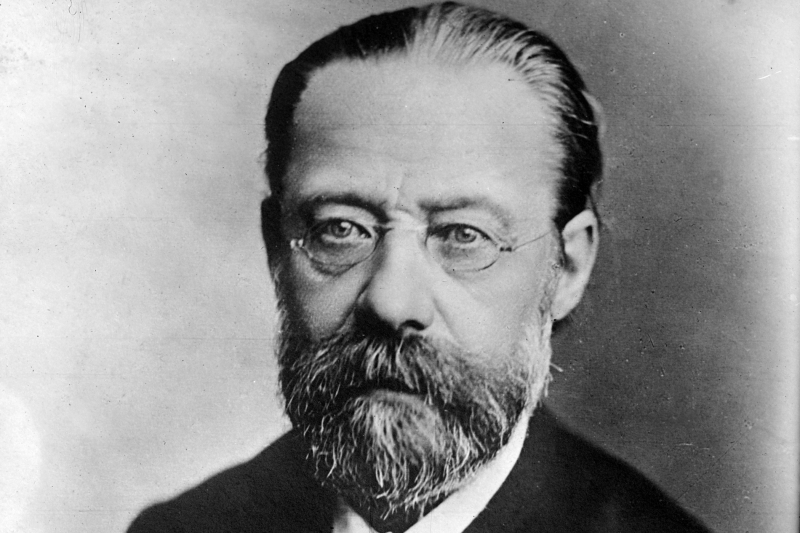
temata.rozhlas.cz 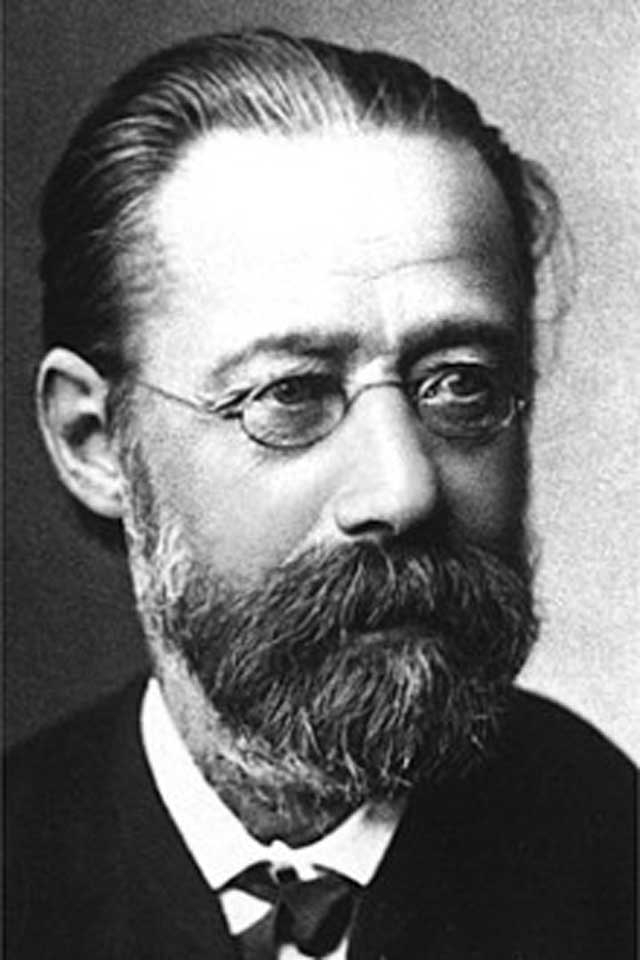
pragueclassicalconcerts.com -
Antonín Leopold Dvořák (8 September 1841 – 1 May 1904) was a Czech composer who was one of the first Czech composers to earn international acclaim. Following the Romantic-era nationalist precedent of his predecessor Bedřich Smetana, Dvořák frequently used rhythms and other features of Moravian and Bohemian folk music.
Dvořák demonstrated his musical abilities at a young age, beginning as a violin student at the age of six. His works were first performed publicly in Prague in 1872 and, with particular success, in 1873, when he was 31 years old. In 1874, he submitted a composition for the Austrian State Prize for Composition, which included scores for two further symphonies and other works. Although Dvořák was unaware of it, Johannes Brahms was the jury's leading member and was very impressed. Dvořák received the prize in 1874, 1876, and 1877, when Brahms and the eminent critic Eduard Hanslick, who was also a member of the panel, made themselves known to him.
Dvořák's first religious work, a setting of Stabat Mater, premiered in Prague in 1880. It was a huge hit in London in 1883, and it spawned numerous other productions in the United Kingdom and the United States. Dvořák was appointed as a professor at the Prague Conservatory in 1891. He wrote his Dumky Trio, one of his most successful chamber music compositions, between 1890 and 1891. Dvořák immigrated to the United States in 1892, when he became the director of the National Conservatory of Music of America in New York City. Dvořák created his two most successful orchestral works while in the United States: the Symphony From the New World, which established his fame around the world, and his Cello Concerto, one of the most highly acclaimed of all cello concerti. Dvořák relocated from New York City to Spillville in the summer of 1893, and it was here that he produced his most renowned piece of chamber music, the String Quartet in F major, Op. 96, which became known as the American Quartet.
Except for his first opera, all of Dvořák's nine operas have Czech librettos and were designed to represent the Czech national spirit, as were some of his choral works. Rusalka is by far the most successful of the operas. The seventh Humoresque and the song "Songs My Mother Taught Me" are two of his smaller works that have been widely performed and recorded. He has been called "arguably the most versatile composer of his time." The Dvořák Prague International Music Festival is a prominent concert series produced each year to commemorate Dvořák's life and works.
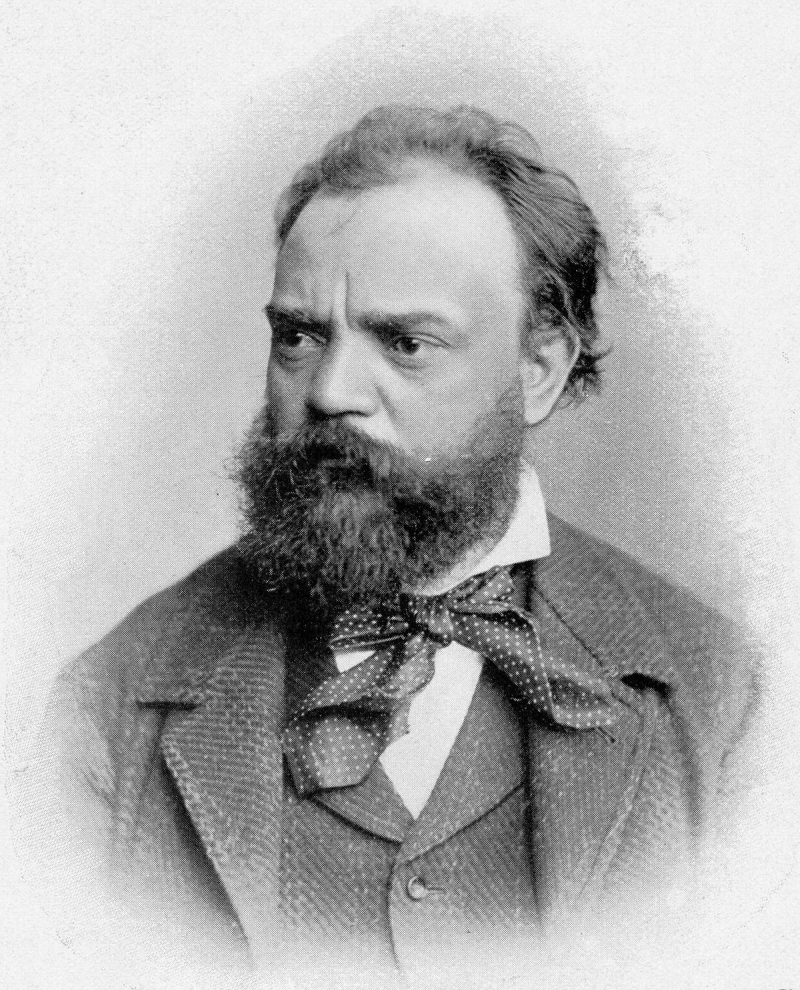
en.wikipedia.org 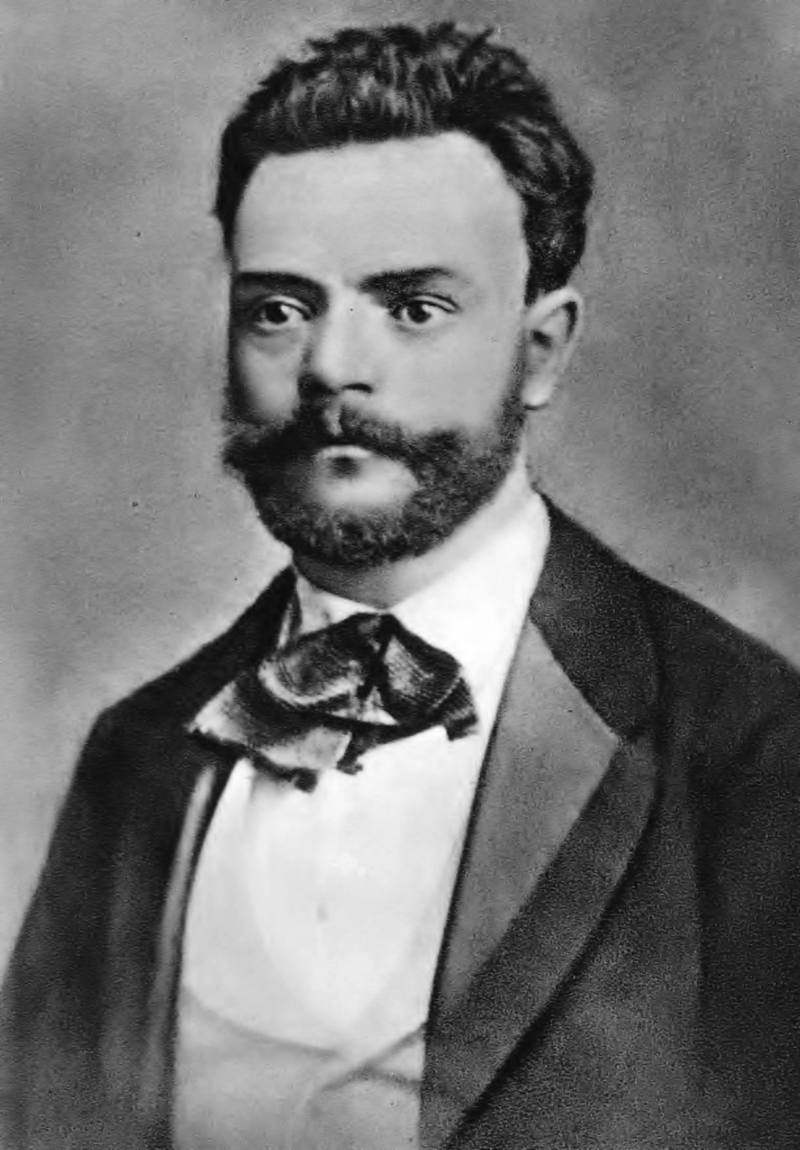
melhoresmusicasclassicas.com -
Tomáš Garrigue Masaryk was a Czechoslovak politician, statesman, sociologist, and philosopher who lived from 7 March 1850 to 14 September 1937. Until 1914, he campaigned for the Austro-Hungarian Empire to be restructured as a federal state. Masaryk achieved independence for the Czechoslovak Republic with the assistance of the Allied Powers as World War I concluded in 1918. He was the first president of Czechoslovakia, which he co-founded with Milan Rastislav Štefánik and Edvard Bene.
Masaryk served in the Reichsrat with the Young Czech Party from 1891 to 1893 and with the Czech Realist Party, which he created in 1900, from 1907 to 1914. When World War I broke out in 1914, Masaryk determined that the wisest course of action for Czechs and Slovaks was to pursue independence from Austria-Hungary. In December 1914, he went into exile with his daughter, Olga, and spent time in Western Europe, the Russian Empire, the United States, and Japan. During his exile, Masaryk began gathering Czechs and Slovaks outside of Austria-Hungary, building ties that would be critical to Czechoslovak independence. He gave speeches and authored essays and memoranda in support of the Czechoslovak cause. Despite having a Serbian passport, Masaryk was instrumental in organizing the Czechoslovak Legion in Russia as an effective combat force on the Allied side during World War I. During and after World War I, Masaryk advocated for the merger of the Kingdoms of Serbia and Montenegro.
When the Austro-Hungarian Empire fell in 1918, the Allies recognized Masaryk as the interim Czechoslovak government's leader. While in New York, he was elected president of Czechoslovakia by the National Assembly in Prague on November 14, that year. Masaryk was re-elected three times: once in May 1920, once in 1927, and once in 1934. The 1920 constitution normally limited a president to two consecutive terms, but a one-time provision permitted the first president, Masaryk, to run for an unlimited number of terms. Masaryk died in Lány at the age of 87, less than two years after leaving office. He was renowned as the Grand (Great) Old Man of Europe but he did not live to see the Munich Agreement or the Nazi conquest of his nation.
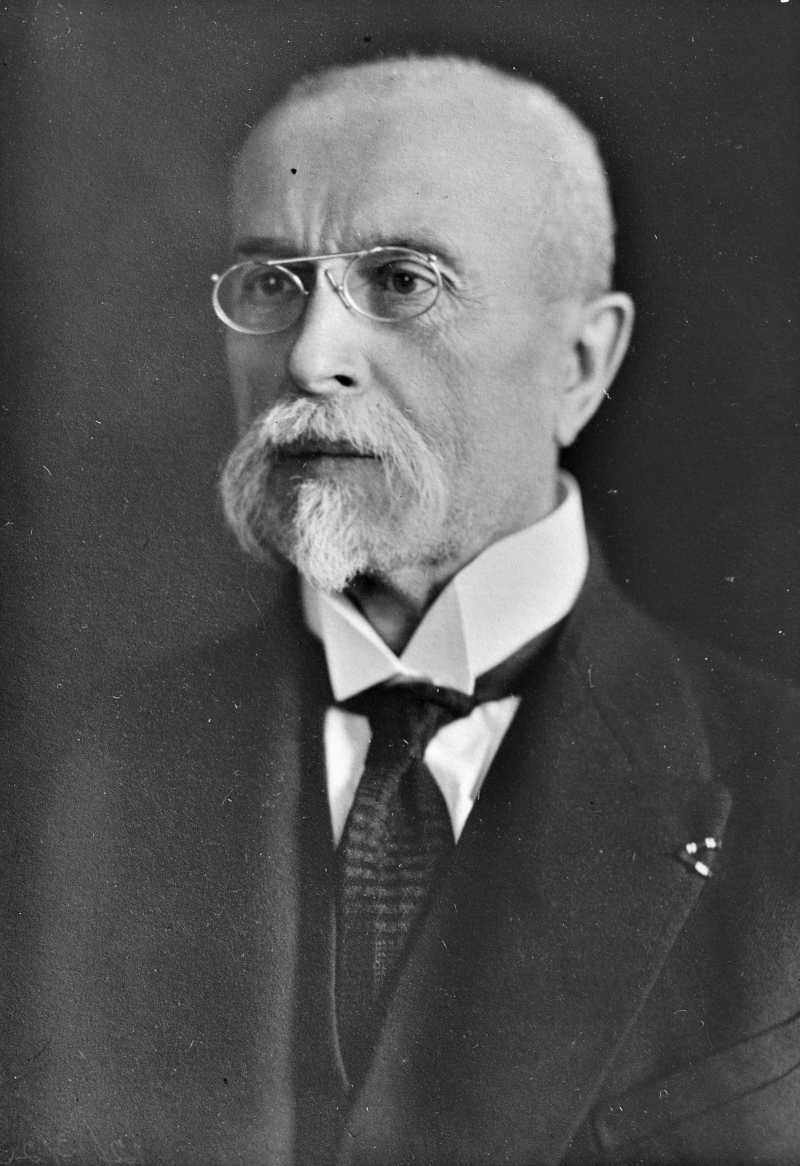
commons.wikimedia.org 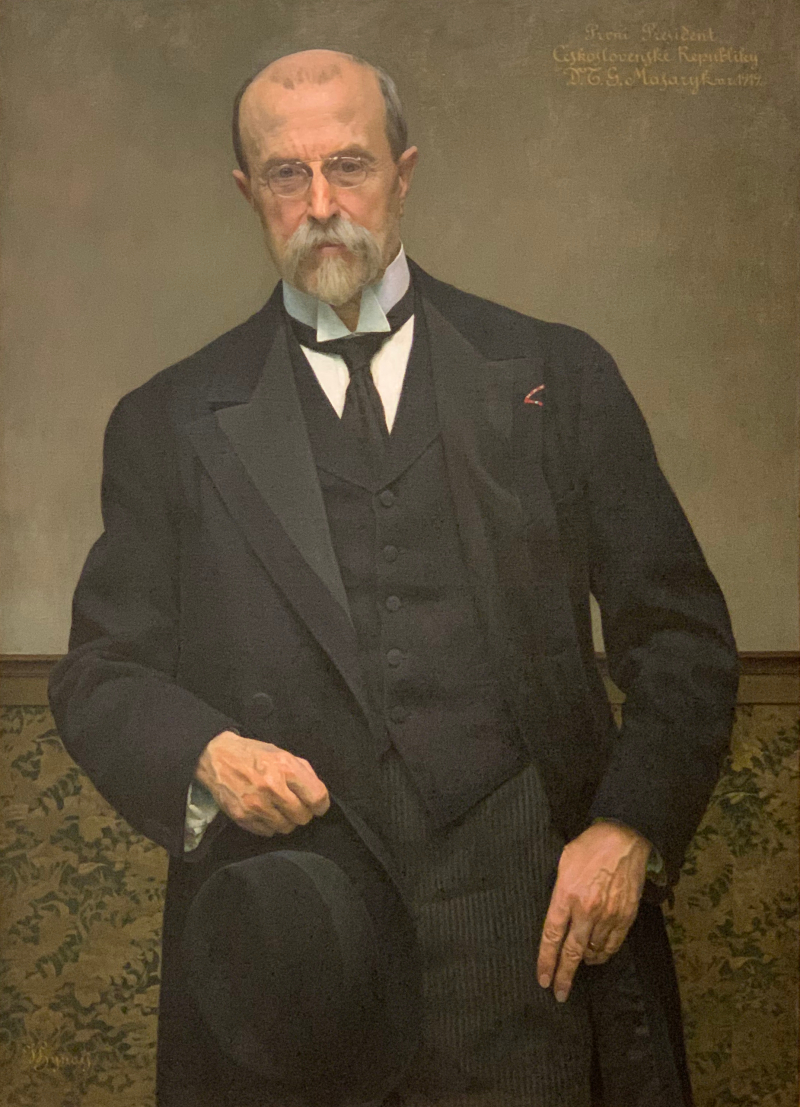
commons.wikimedia.org -
Sigmund Freud (born Sigismund Schlomo Freud; 6 May 1856 – 23 September 1939) was an Austrian neurologist and the creator of psychoanalysis, a clinical method for diagnosing and treating psychiatric diseases through dialogue between a patient and a psychoanalyst.
Freud was born in the Moravian town of Freiberg, Austrian Empire, to Galician Jewish parents. In 1881, he received his doctorate in medicine from the University of Vienna. He was named a docent in neuropathology after obtaining his habilitation in 1885, and he became an attached professor in 1902. Freud lived and worked in Vienna, where he established his psychiatric practice in 1886. Freud fled Austria in 1938 to avoid Nazi persecution. In 1939, he died in exile in the United Kingdom.
In developing therapeutic approaches such as the use of free association and discovering transference, Freud established their important position in the analytic process. Freud's expansion of sexuality to encompass infantile forms led him to develop the Oedipus complex as a major tenet of psychoanalytic thought. His interpretation of dreams as wish fulfillment gave models for clinical research of symptom genesis and the underlying mechanisms of repression. On this foundation, Freud developed his theory of the unconscious and a model of a psychic organization comprised of id, ego, and super-ego. Freud proposed the presence of libido, a sexualized force that invests mental processes and structures and develops erotic attachments, as well as a death drive, which is the basis of compulsive repetition, hatred, aggressiveness, and neurotic guilt. Freud later established a broad understanding and critique of religion and culture in his later works.
Though it is in decline as a diagnostic and clinical technique, psychoanalysis is nevertheless widely used in psychology, psychiatry, and psychotherapy, as well as in the humanities. As a result, it continues to spark heated debate about its therapeutic efficacy, scientific standing, and whether it advances or hurts the feminist cause. Nonetheless, Freud's work pervades modern Western philosophy and popular culture.
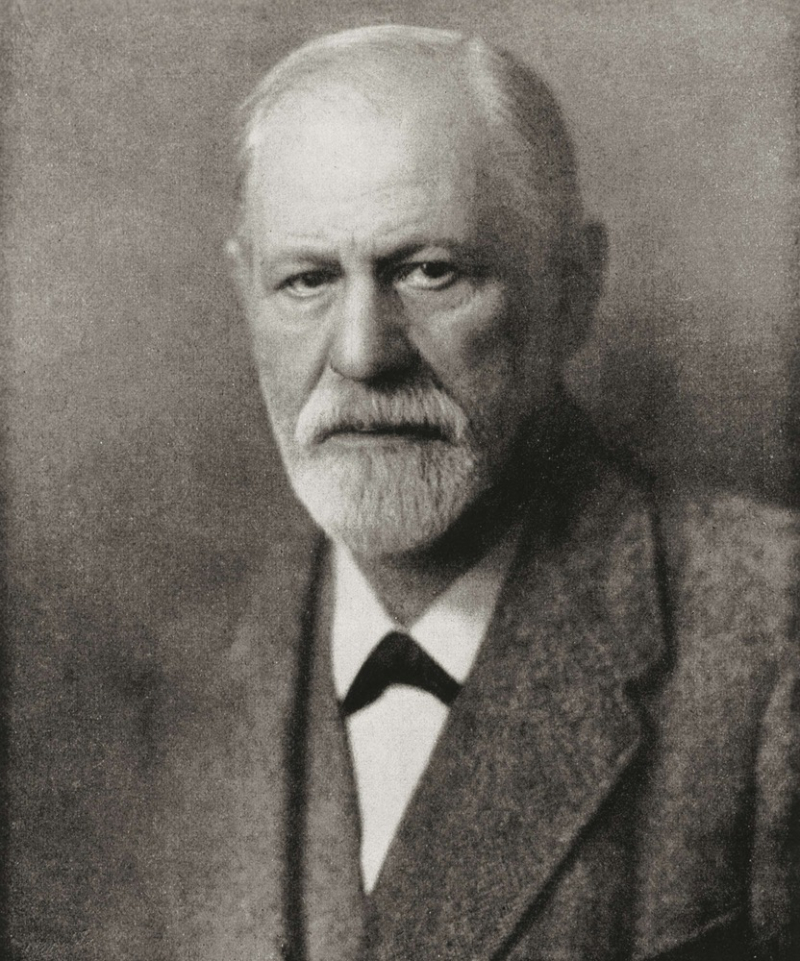
livescience.com 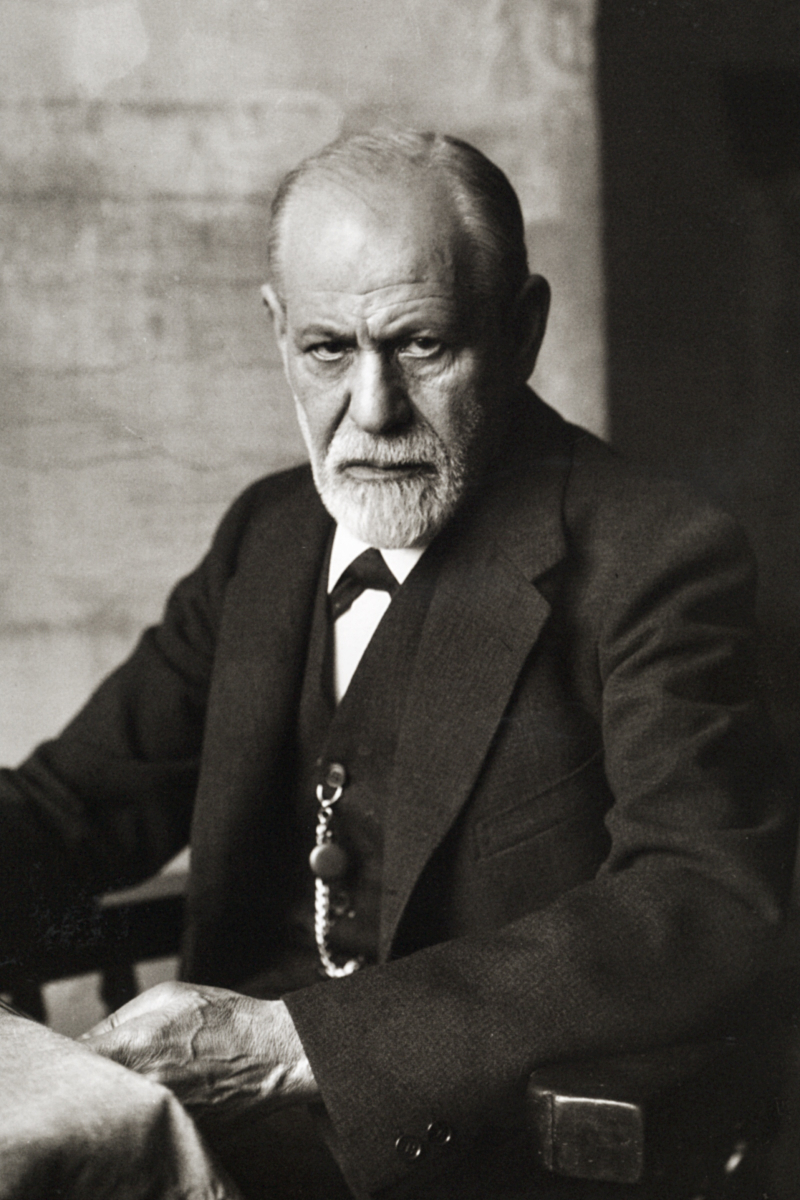
cdo.wikipedia.org -
Alphonse Mucha (24 July 1860 – 14 July 1939) was a Czech painter, illustrator, and graphic designer who lived in Paris during the Art Nouveau period and was most known for his uniquely stylized and ornate theatre posters, particularly those of Sarah Bernhardt. He created illustrations, ads, decorative panels, and designs that became some of the most well-known pictures of the time.
He returned to his birthplace in the second half of his career, at the age of 57, and devoted himself to a series of twenty enormous paintings known as The Slav Epic, chronicling the history of all the Slavic peoples of the world, which he painted between 1912 and 1926. On the tenth anniversary of Czechoslovakia's independence, in 1928, he gave the series to the Czech people. He regarded it as his most important work.
In the 1930s, Hitler and Nazi Germany began to threaten Czechoslovakia. Mucha began a new series, a triptych showing the Ages of Reason, Wisdom, and Love, which he worked on from 1936 to 1938 but never finished. On March 15, 1939, the German army paraded through Prague, and Hitler established the Protectorate of Bohemia and Moravia as part of the Greater German Reich at Prague Castle. Mucha was a particular target because of his status as a Slavic nationalist and Freemason. He was arrested, detained for many days, and then released. His condition had deteriorated at that point. He died of pneumonia on 14 July 1939, 10 days before his 79th birthday and just weeks before the onset of World War II. Despite the fact that public gatherings were prohibited, a large throng witnessed his interment in the Slavn Monument of Vyehrad cemetery, which is reserved for prominent personalities in Czech culture.
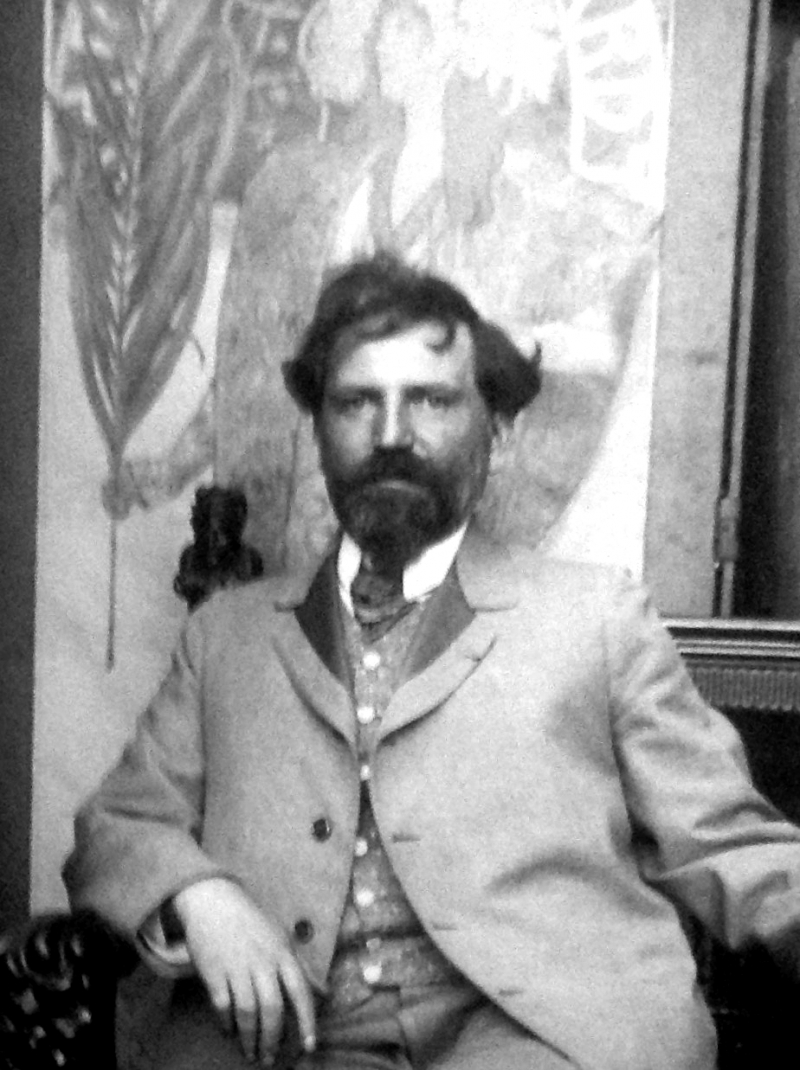
en.wikipedia.org 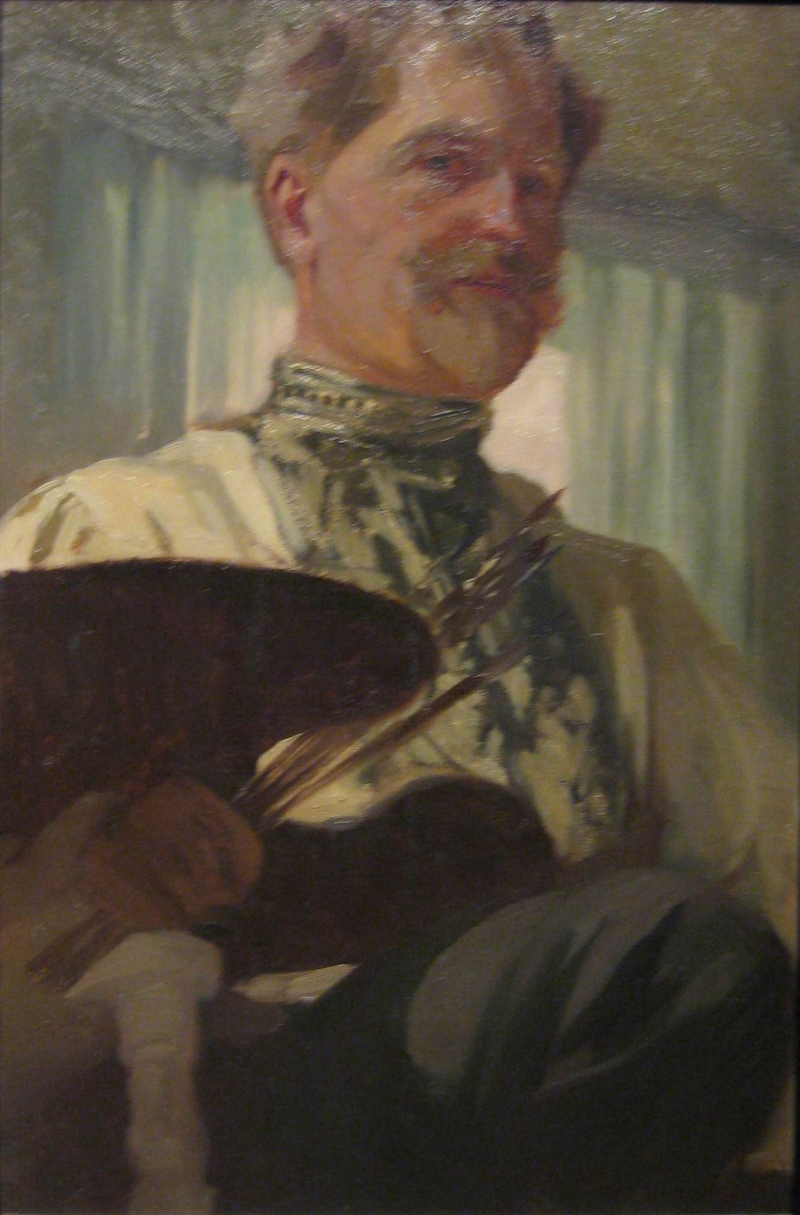
Self-portrait of Mucha at work (1907) -en.wikipedia.org -
One of the most important historical figures in the Czech Republic (Czechia) is Franz Kafka. Franz Kafka was a German-speaking Bohemian novelist and short-story writer who is largely considered one of the key figures of twentieth-century literature. His work combines aspects of realism and fantasy. Among his most well-known works are the short tale "The Metamorphosis" and the novel The Trial and The Castle. The term Kafkaesque has entered English to denote events similar to those described in his works.
Kafka was born in Prague, the capital of the Kingdom of Bohemia, then part of the Austro-Hungarian Empire, and now the Czech Republic, into a middle-class German-speaking Czech Jewish family. He studied law and was hired full-time by an insurance business after completing his legal degree, forcing him to limit writing to his spare time.
During his lifetime, just a few of Kafka's writings were published: the story collections Contemplation and A Country Doctor, as well as individual pieces (such as "The Metamorphosis"), were published in intellectual periodicals but gained little public attention. Kafka's executor and friend Max Brod was told in his will to burn his unfinished works, including his novels The Trial, The Castle, and Amerika, but Brod rejected these directions and got the majority of his work published. Throughout the twentieth and twenty-first centuries, Kafka's work impacted a wide range of writers, critics, artists, and thinkers.
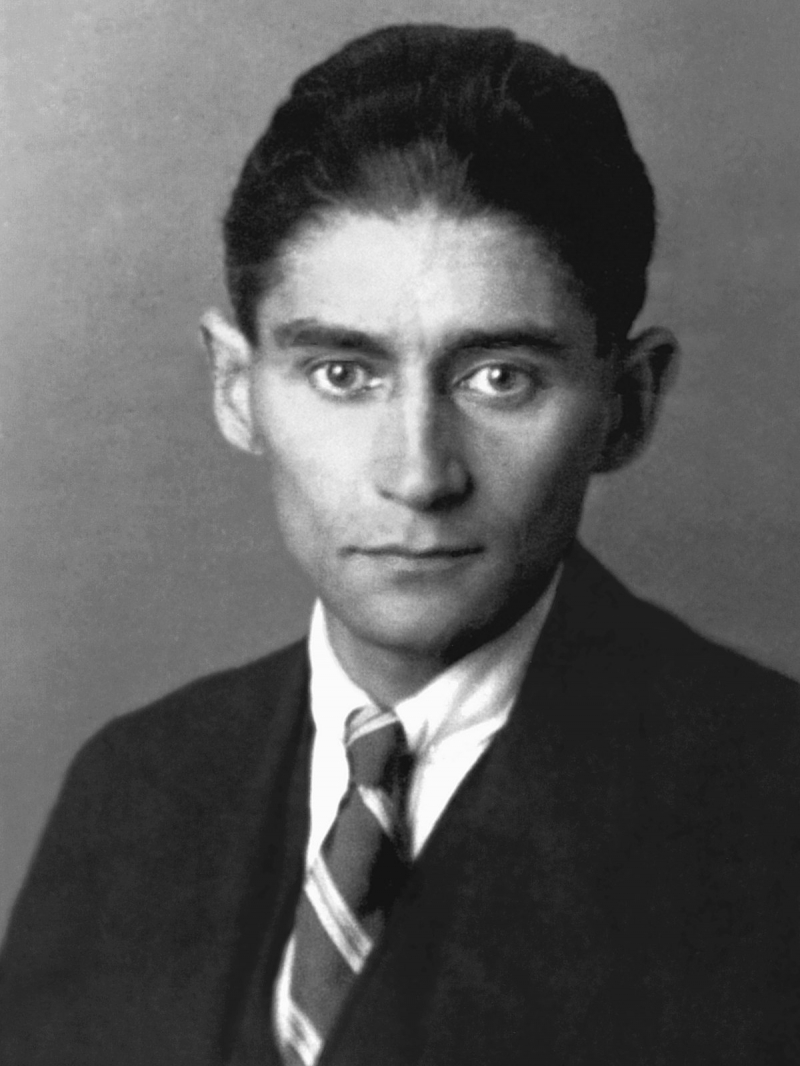
en.wikipedia.org 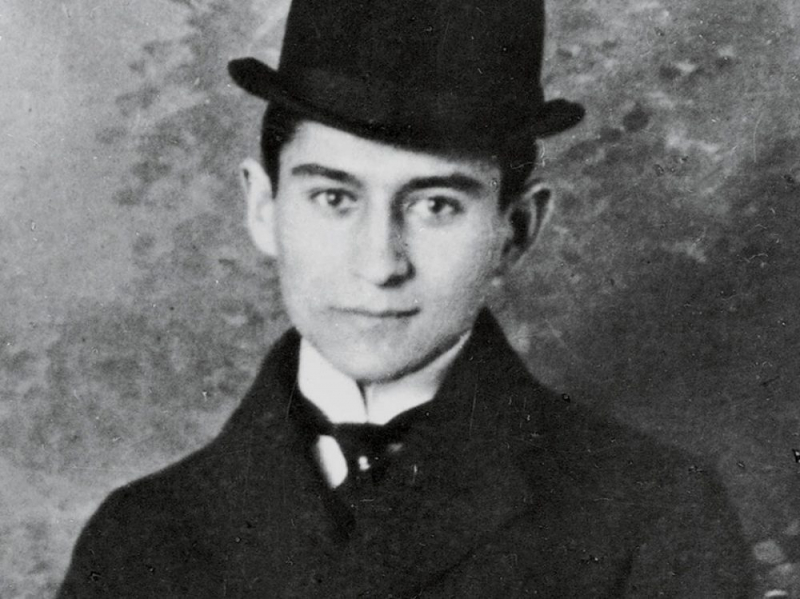
revelogue.com -
Karel Čapek was a Czech writer, playwright, and critic who lived from 9 January 1890 until 25 December 1938. He is most known for his science fiction, particularly his novel War with the Newts (1936) and the play R.U.R. (Rossum's Universal Robots, 1920), which popularized the term "robot." He also penned several politically sensitive works about the social unrest of the time. He pushed for free expression and firmly opposed the emergence of fascism and communism in Europe, influenced by American pragmatic liberalism.
Čapek was nominated for the Nobel Prize in Literature seven times but never won it. Several awards, however, bear his name, such as the Karel Čapek Prize, which is given every other year by the Czech PEN Club for literary work that contributes to the reinforcement or preservation of democratic and humanist principles in society. He was also instrumental in establishing the Czechoslovak PEN Club as a member of International PEN.
Čapek died on the eve of WWII as a result of a life-long medical problem. After the war, his literary legacy became well established. In his biography of Čapek, Ivan Klíma mentions his influence on modern Czech literature as well as the development of Czech as a written language. Because of their decision to employ vernacular, Čapek and contemporaries like Jaroslav Hašek sparked a portion of the early 20th-century resurgence in written Czech. It is because of Čapek that the written Czech language grew closer to the language people actually talked, argues Klima. Čapek was a translator as well, and his translations of French poetry into Czech influenced a new generation of Czech poets.
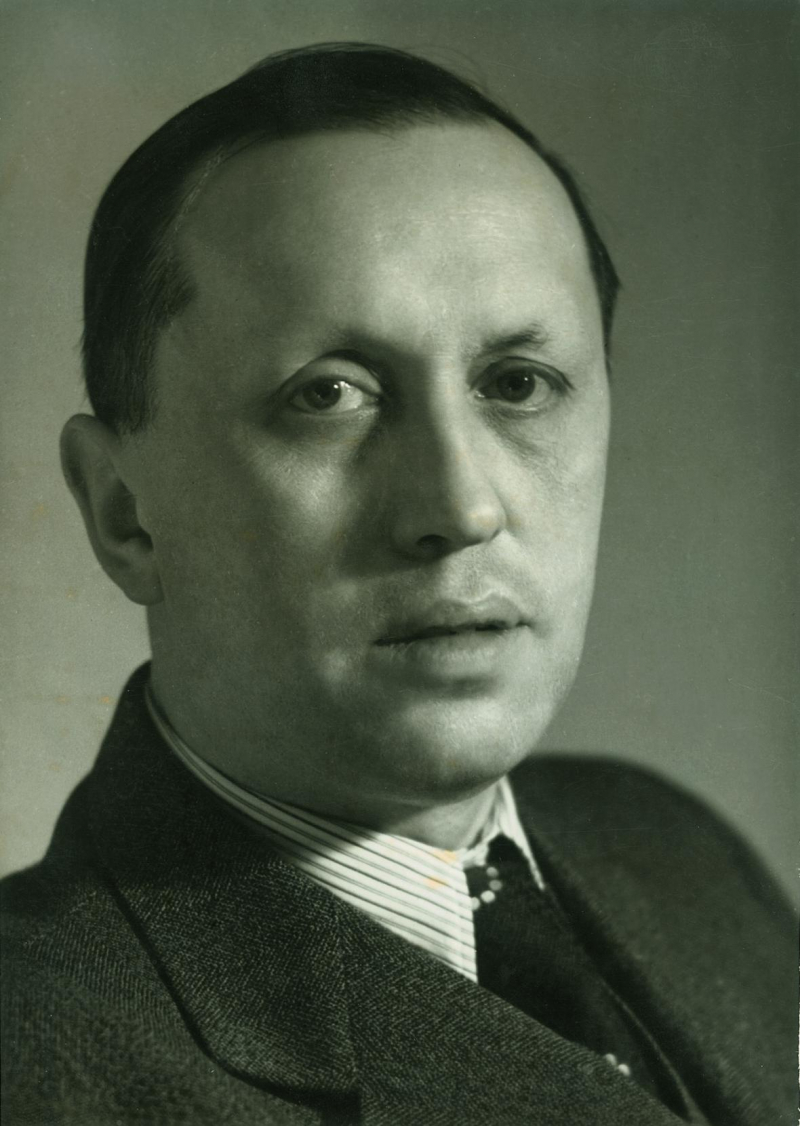
imdb.com 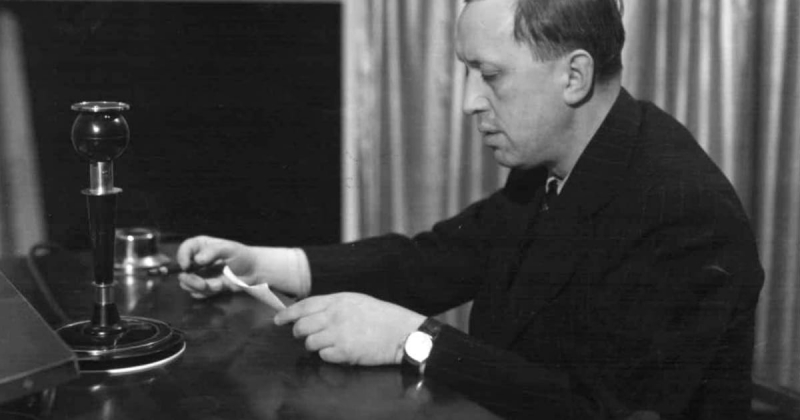
english.radio.cz -
One of the most important historical figures in the Czech Republic (Czechia) is Jaroslav Seifert. Jaroslav Seifert (September 23, 1901 – January 10, 1986) was a Czech poet, writer, and journalist. Seifert's first collection of poems, published in 1921, was born in Žižkov, a suburb of Prague in what was then Austria-Hungary. He was a member of the Communist Party of Czechoslovakia, the editor of several communist periodicals and magazines, including Rovnost, Sršatec, and Reflektor, and a communist publishing house employee.
During the 1920s, he was regarded as a key figure in the Czechoslovakian creative avant-garde. He was a co-founder of the journal Devětsil. In March 1929, he and six other writers left the KSČ after signing a declaration condemning the new party leadership's Bolshevik Stalinist tendencies. During the 1930s and 1940s, he worked as a journalist in the social-democratic and trade union press.
Seifert left journalism in 1949 to dedicate himself entirely to literature. His poetry received key state prizes in 1936, 1955, and 1968, and he was named a National Artist in 1967. For many years, he was the official Chairman of the Czechoslovak Writers Union (1968–70). He was a signatory of the Czechoslovak Socialist Republic's government-opposing Charter 77 in 1977.
In 1984, Seifert was awarded the Nobel Prize in Literature. He was unable to attend the award ceremony due to ill health, but his daughter accepted the Nobel Prize in his place. Even though the award was significant, it received barely a brief mention in the state-controlled media. He died in 1986, at the age of 84, and was interred in the Kralupy nad Vltavou municipal cemetery.
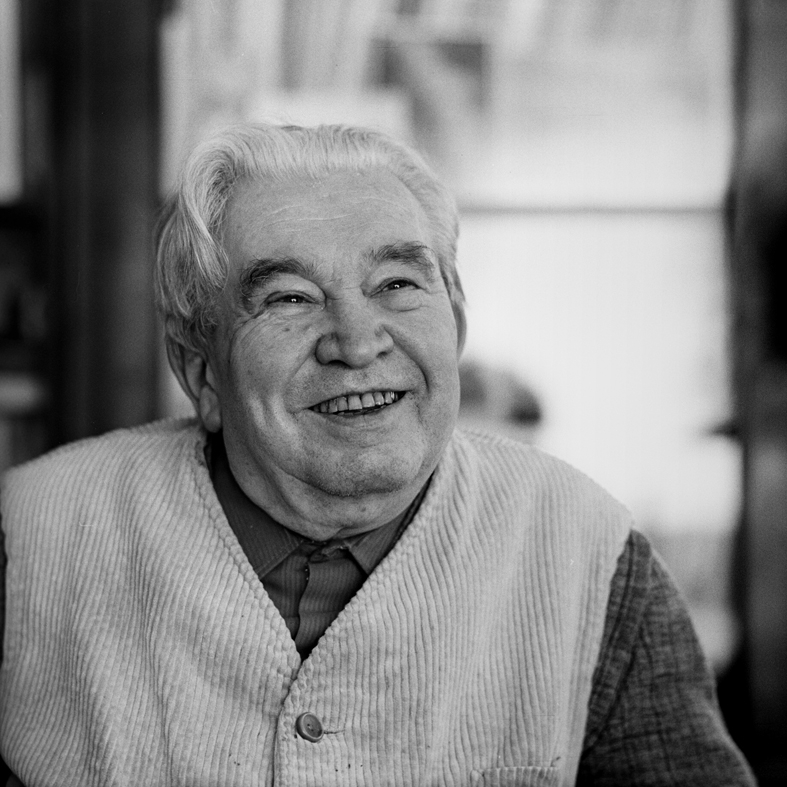
en.wikipedia.org 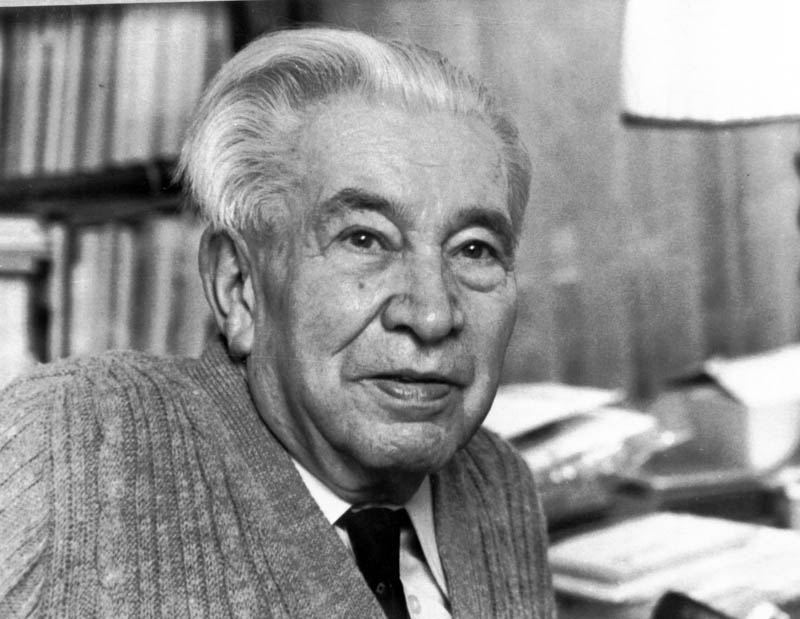
thivien.net -
Václav Havel was a Czech lawmaker, author, poet, dramatist, and former dissident who lived from 5 October 1936 until 18 December 2011. Havel was the last president of Czechoslovakia from 1989 to its split in 1992, and subsequently the first president of the Czech Republic from 1993 to 2003. He was the first democratically elected president of any country after communism fell. He is well-known in Czech literature for his plays, essays, and memoirs.
Havel rose to popularity as a playwright after his scholastic opportunities were hampered by his bourgeois upbringing and his freedoms were limited by the Czechoslovak Socialist Republic. Havel employed an absurdist manner to critique the Communist system in works such as The Garden Party and The Memorandum. He became increasingly politically involved after participating in the Prague Spring and being blacklisted following the Warsaw Pact invasion of Czechoslovakia, and he helped create various dissident projects, including Charter 77 and the Committee for the Defense of the Unjustly Prosecuted. His political actions led him under the scrutiny of the StB secret police, and he was imprisoned many times, the longest of which lasted nearly four years, between 1979 to 1983.
Havel's Civic Forum party was instrumental in overthrowing the Communist regime in Czechoslovakia in 1989. He took office soon after and was re-elected in a landslide the following year and after Slovak independence in 1993. Havel was influential in the demise of the Warsaw Pact and the expansion of NATO membership eastward. Many of his positions and policies, such as his opposition to Slovak independence, condemnation of the treatment of Sudeten Germans, such as the expulsion of Germans from Czechoslovakia after World War II, and granting general amnesty to all those imprisoned during the Communist era, were highly divisive on the domestic front. By the end of his presidency, he was more popular abroad than he was at home. Following his presidency, Havel continued to work as a public intellectual, founding many initiatives including as the Prague Declaration on European Conscience and Communism, the VIZE 97 Foundation, and the Forum 2000 annual conference.
Havel's political thought was characterized by anti-consumerism, humanitarianism, environmentalism, civil activity, and direct democracy. From 2004 until his death, he was a member of the Czech Green Party. He was awarded the Presidential Medal of Freedom, the Gandhi Peace Prize, the Philadelphia Liberty Medal, the Order of Canada, the Four Freedoms Award, the Ambassador of Conscience Award, and the Hanno R. Ellenbogen Citizenship Award during his lifetime. The academic year 2012-2013 at the College of Europe was named in his honor. Some belief him to be one of the twentieth century's most prominent intellectuals. In 2012, Prague's international airport was renamed Václav Havel Airport Prague.
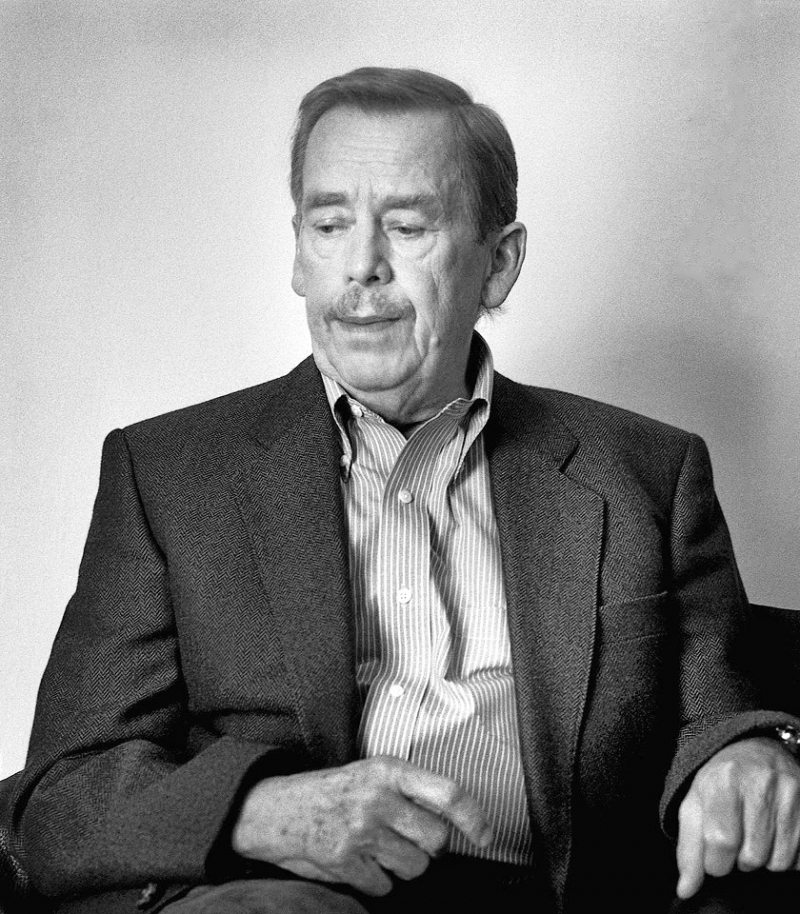
vi.wikipedia.org 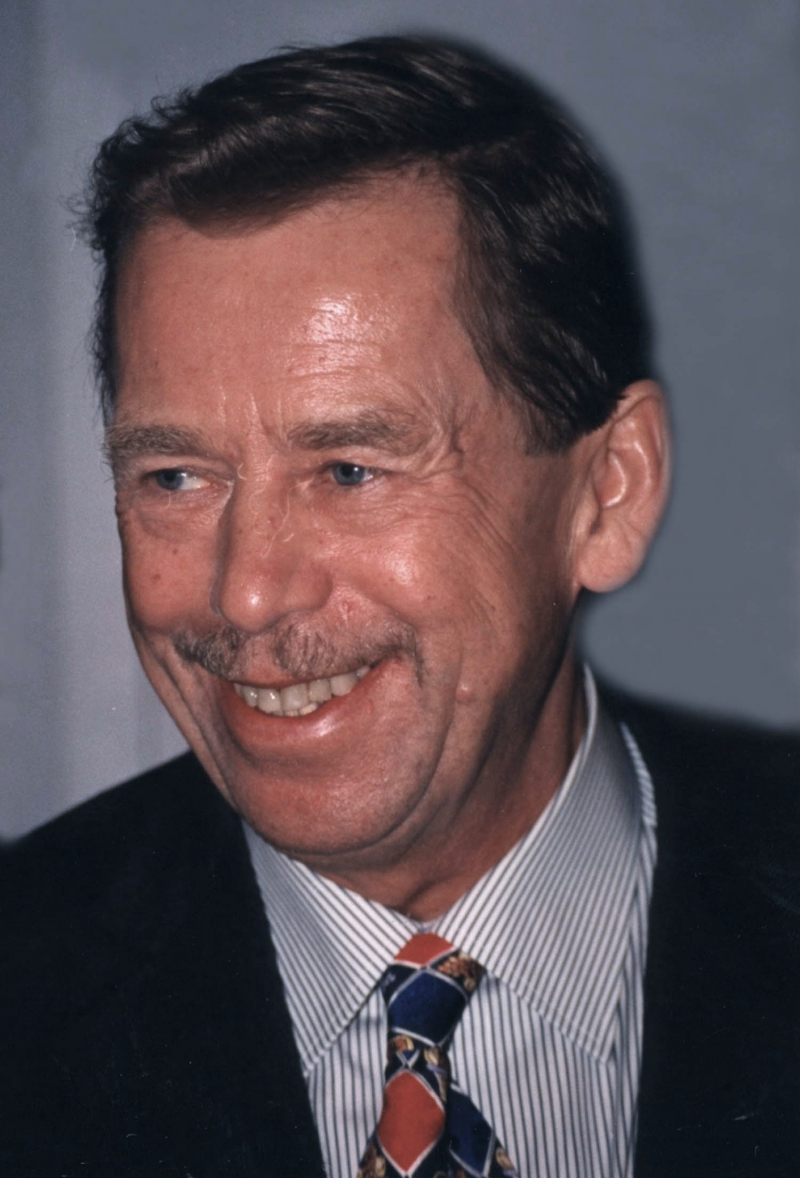
en.wikipedia.org













